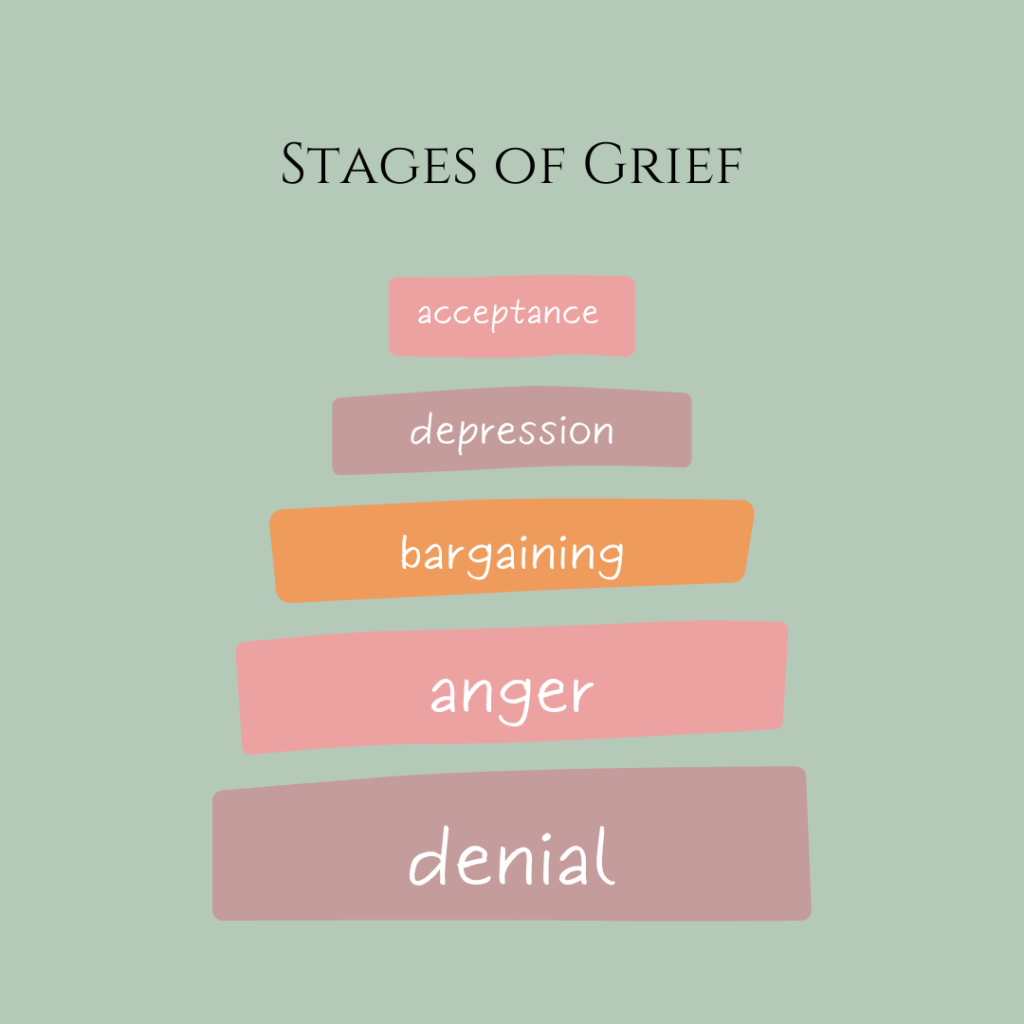Table of Contents
Divorce is one of life’s most challenging life experiences, accompanied by intense emotions that can feel overwhelming. The end of a marriage signifies not just the loss of a relationship but also the dreams and future plans that two individuals weave together.
Although as painful as the process might be understanding the psychological process of grief and healing can provide solace and pave a path towards healing. In this article, I will explore the stages of grief after divorce and offer practical, research-backed strategies for healing.
Understanding grief and its healing process
Grief is the most non-linear process to go through. Grief is not only caused by the loss of someone near and dear to death, it is also a loss of a relationship, a version of yourself. Grief might look different for different people and work differently, moreover, the process is very similar as we go through it. Divorce grief is a natural response to the loss of a significant relationship. It can be compared to grieving the death of a loved one.
According to psychologists, the emotional impact of divorce can be profound, often leading to feelings of long-lasting sadness, anger, confusion, and loneliness. Dr. Elisabeth Kübler-Ross, a Swiss-American psychiatrist, introduced the concept of the five stages of grief, which can also be applied to the process of coping with divorce.

The 5 Stages of grief after divorce
1. Denial
Denial is often the first reaction to the reality of divorce. It acts as a defence mechanism, allowing you to avoid the pain of loss temporarily. You may find yourself thinking, “This can’t be happening to me, or how could this even happen to me” Denial provides a cushion, giving you time to process the shock of the situation.
2. Anger
As denial fades, anger often surfaces. You may feel anger toward your ex-partner, yourself, or even the situation. Questions like, “Why is this happening?” and “How could they do this to me?” are common during this stage. It’s important to understand that anger is a normal part of the healing process, but challenging it is the key.
3. Bargaining
During the bargaining stage, you may find yourself dwelling on “what if” and “if only” scenarios. This is an attempt to regain control and reverse the reality of the divorce. You may think, “If only I had done things differently, maybe this wouldn’t have happened.” Bargaining can prolong the healing process if you become stuck in it.
4. Depression
As the reality of divorce settles in, feelings of sadness, hopelessness, and despair may emerge. Depression is a natural response to the loss of a marriage and the life you once knew. This stage can be the most difficult, but it is also a time of deep reflection and self-growth.
5. Acceptance
Acceptance doesn’t mean you are completely healed or over the divorce, it simply signifies that you have come to terms with it. In this stage, you begin to move forward, embracing the reality of your new life. Acceptance is a gradual process, and healing is never a straight process, you might bump into different stages from time to time and wonder why am I feeling these feelings, remember to not be too hard on yourself.
4 ways to heal from a divorce
1. Acknowledge and accept your emotions
After my divorce, I have often found myself in the different stages of grief, even though on the surface I feel I am healed. Memories trigger, and sometimes situations put us back in our past. Make intentional efforts to recognise and accept your emotions, no matter how painful they may be. Suppressing your feelings can lead to prolonged grief and emotional difficulties. Allow yourself to feel the sadness, anger, and fear that come with divorce.
2. Seek professional support
Therapy or counselling can be incredibly beneficial during the healing process. A professional therapist can provide a safe space to explore your emotions and offer guidance on coping strategies. Self-help tools like journaling and mindfulness-based meditation are particularly effective for managing grief.
3. Build a strong support system
Social support is a critical factor in emotional recovery. Surround yourself with supportive friends and family members who can offer comfort and encouragement. If you feel isolated, consider joining a women’s support group where you can connect with others who are experiencing similar challenges.
4. Focus on self-care
Healing from divorce requires self-care. Engage in activities that promote physical, emotional, and mental well-being. Regular exercise, a balanced diet, and adequate sleep are essential for maintaining your health. Sound sleep has been a game changer for me, I do not compromise my sleep over any negative thoughts, I practise mindfulness and relaxation techniques to help me feel calm and improve emotional resilience.
Healing from any kind of loss is a long journey that takes time, patience, and self-compassion. By understanding the stages of grief and identifying effective coping strategies, you can overcome this challenging period and emerge stronger on the other side. Keep reminding yourself that it is okay to grieve, and it’s okay to seek help. Healing and Grief might look different to different people, you be yourself, embrace yourself and give yourself the love you need the most.








